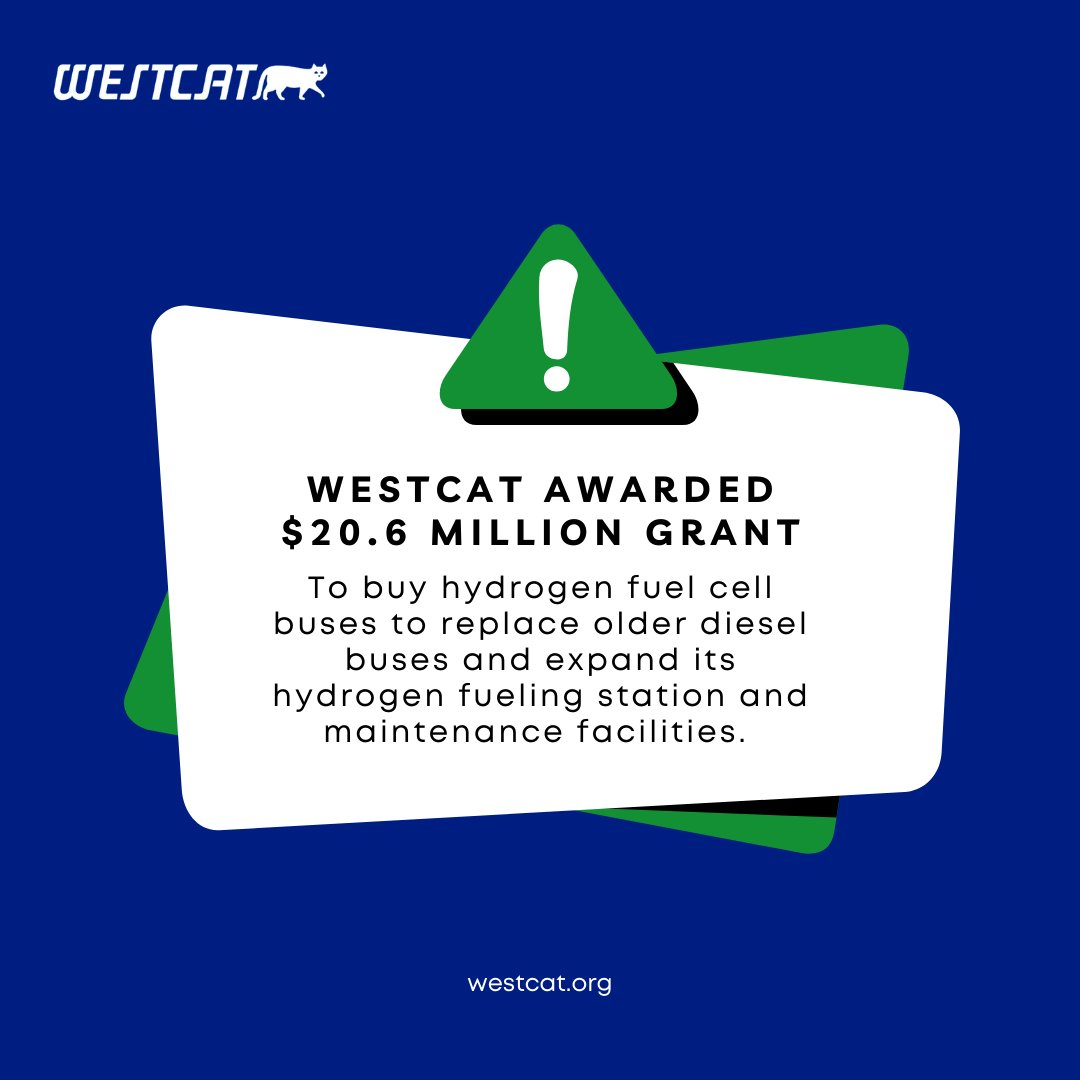WestCAT Secures Federal Funding for Hydrogen Mobility Project
Key Ideas
- The Western Contra Costa Transit Authority (WestCAT) has received $20.6 million in federal funding to purchase hydrogen fuel cell buses, upgrade fueling stations, and enhance maintenance facilities.
- This initiative aims to transition WestCAT to a completely zero-emission fleet, contributing to improved regional air quality and workforce training in sustainable technologies.
- The funding is part of a larger national effort, with approximately $1.5 billion allocated to 117 projects across 47 states to enhance public transportation and reduce emissions.
- The Biden-Harris Administration's commitment to zero emissions by 2050 is supported by this funding, which prioritizes zero and low-emission technologies, benefiting both the environment and the economy.
The Western Contra Costa Transit Authority (WestCAT) has unveiled a new project focused on advancing sustainable mobility through the adoption of hydrogen fuel cell technology. With the support of a $20.6 million federal grant, WestCAT plans to invest in hydrogen fuel cell buses to replace older diesel vehicles, expand hydrogen fueling stations, and upgrade maintenance facilities. This initiative not only aims to modernize the transit fleet but also to provide workforce training to facilitate the transition to a completely zero-emission operation. By embracing zero and low-emission technologies, WestCAT's project aligns with broader climate goals and will contribute to improved regional air quality.
The federal funding received by WestCAT is part of a larger national initiative that aims to enhance public transportation infrastructure and reduce emissions across the country. With approximately $1.5 billion designated for 117 projects in 47 states, this funding will support the deployment of cleaner transportation solutions and bolster the transit workforce. The Biden-Harris Administration's vision of achieving zero emissions by 2050 is further supported through initiatives like the one undertaken by WestCAT, which prioritizes environmentally friendly technologies.
The funding programs, including the Grants for Buses and Bus Facilities and the Low-and No-Emission Vehicle programs administered by the Federal Transit Administration, play a crucial role in driving the adoption of sustainable transportation solutions. The Bipartisan Infrastructure Law provides substantial financial support for these programs, reflecting a commitment to investing in the modernization and decarbonization of the transit sector. As WestCAT moves towards a zero-emission future, it serves as a model for sustainable mobility practices that benefit both the community and the environment.
Topics
Public Transit
Sustainable Mobility
Public Transportation
Air Quality
Federal Funding
Infrastructure Law
Zero-emission Fleet
Latest News
